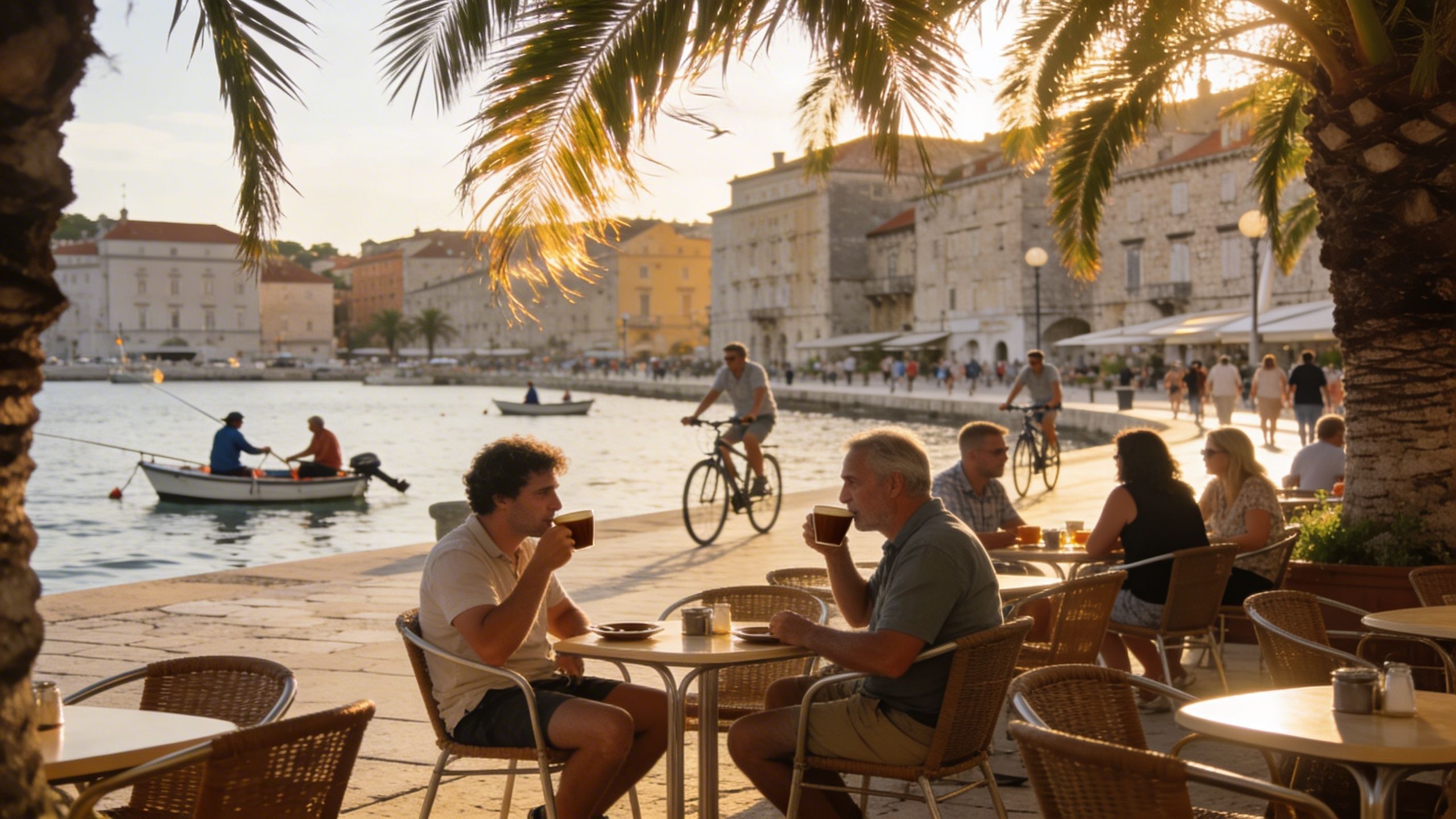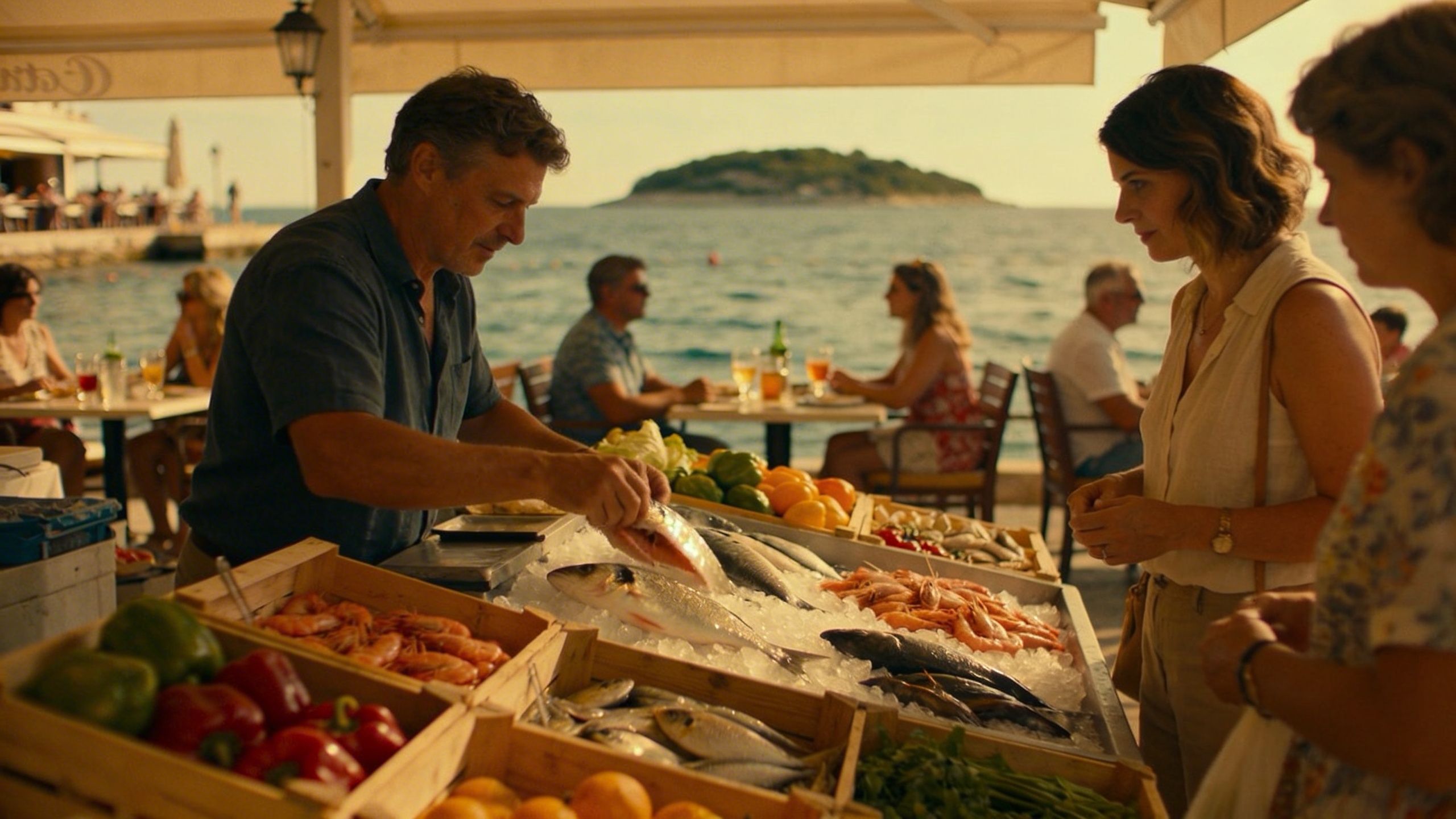France: Lifestyle First, Then Hard Numbers
France’s lifestyle draw masks tax and regulatory details that alter real net yields; pair neighbourhood sense with notarial and tax modeling to align dreams with returns.
Imagine a Saturday morning in France: a steam‑clouded espresso at Café de la Nouvelle Aube in Le Marais, cyclists threading between boulangeries and antique shops, and a coastal breeze that smells faintly of thyme on the Côte d'Azur. That contrast — city density and provincial leisure — is what draws international buyers. But lifestyle postcards mask a second reality: taxation, residency rules and market dynamics that materially change returns and ownership costs.
Living France: daily rhythms that shape where you buy

France is best understood as many small countries in one: Parisian mornings are all cafés and metro cadence, Bordeaux weekends centre on markets and riverside dining, and Provençal life orients around slow seasonal markets and olive groves. For buyers, daily life determines property tradeoffs — proximity to a métro matters for rental turnover, while access to a regional train or good road links shapes second‑home seasonality.
Neighbourhood spotlight: Le Marais, Croix‑Rousse, and Vieux‑Nice
Le Marais (Paris) offers compact apartments that command high capital values and steady short‑let demand but weak gross yields; Croix‑Rousse (Lyon) mixes affordable per‑m² pricing with young professional renters; Vieux‑Nice gives tourist seasonality and strong short‑let rates but also higher local regulation scrutiny. Walk these streets: you hear the market signals in who queues at which cafés and what types of shops occupy ground floors.
Food, markets and micro‑economies that matter to renters
Weekly markets, a neighbourhood boulangerie and nearby boulodrome aren’t just charming — they drive tenant preferences. A two‑bed flat near Marché des Enfants Rouges or Marché Forville will attract long‑term tenants who value convenience, which reduces vacancy and management costs. Conversely, properties whose appeal rests solely on summer festivals face lumpy annual income.
- Lifestyle highlights to watch when choosing area
- Marché proximity: predictable tenant demand (Le Marais, Lyon 1er)
- Transport nodes: rental turnover and pricing power (TGV access in Bordeaux, Avignon)
Making the move: lifestyle dreams meet French rules

You can fall in love with a street and then be surprised at the tax papers. Non‑residents pay French tax on French‑source income and are subject to withholding or special regimes; local taxes such as taxe foncière remain payable even if you live abroad. Read official guidance before making offers — small tax frictions alter net yields materially. For example, withholding and social levies on rental income can erode a naive gross yield by several percentage points.
Property types and how they fit real lives — and returns
Choose the property type by matching lifestyle to tax regime. Furnished rentals can use the micro‑BIC or réel regimes and often deliver higher short‑term returns, while unfurnished lets fall under micro‑foncier rules with a 30% allowance under small income thresholds. Note: tenant profile affects maintenance costs and allowable deductions, so align type, location and expected tenancy term before bidding.
Working with local experts who translate lifestyle into numbers
- 1. Use a French notaire early to verify title, servitudes and any urban planning restrictions that kill conversions. 2. Hire an accountant (expert‑comptable) familiar with non‑resident rental taxation to model net yield after withholding and social levies. 3. Ask agents for actual rent rolls and vacancy stats, not staged rent estimates. 4. Insist on energy diagnostics (DPE) and factor renovation or compliance costs into total cost of ownership. 5. Get a local property manager quote to understand real net yield post‑management.
Insider knowledge: expat realities that reshape investment logic
Experienced expats tell a common story: the house on the postcard underperforms unless you adapt to local seasonality and regulation. Recent market data show price stabilisation in 2025 but also rising activity in Paris and select secondary cities, meaning timing and micro‑location drive returns more than national narratives.
Cultural and administrative friction you’ll actually feel
Language barriers surface in contract nuance and utility sign‑ups; local conventions such as état des lieux (check‑in/out inventory) and the strict tenant protection laws influence eviction timelines and expected yield risk. Many buyers under‑estimate the time it takes to get permits for renovations in historic centres — four to six months is common for modest projects.
Long‑term lifestyle: what ownership looks like after five years
After five years, successful buyers often pivot: short‑lets convert to long‑term or vice versa depending on tax changes and market signals; renovations aimed at energy efficiency both reduce vacancy risk and meet regulatory pressure that increasingly affects allowed rents. Treat the first five years as a phase of active management and regulation monitoring.
- Red flags and practical checks before you buy
- Unclear ownership structure (SCI, indivision) without professional advice. High DPE rating requirement costs left unquantified. No written rent roll for income properties. Under‑insured historic façades with expensive repair obligations.
Conclusion: France offers a layered lifestyle that rewards buyers who pair emotion with disciplined analysis. Start with the neighbourhood that fits how you want to live, then translate that into an investment model: adjust gross yields for French withholding, local taxes and management, and use on‑the‑ground experts to validate assumptions. If you love the walkable market mornings and the slow summer coastlines, protect that lifestyle with professional due diligence.
Swedish financier who guided 150+ families to Spanish title deeds since relocating from Stockholm in 2012, focusing on legal and tax implications.


